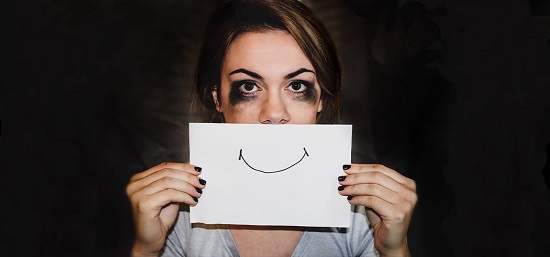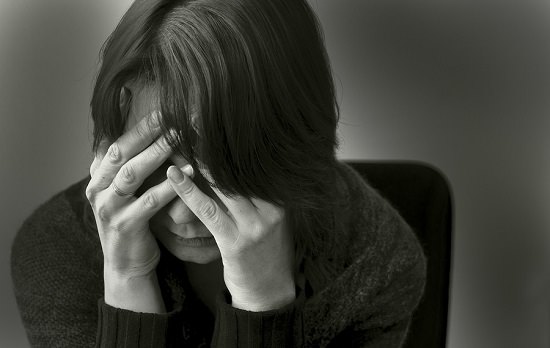Depression comes and goes! Get to know the cyclical nature of depression and more about it by reading the thorough article below.
Depression – Symptoms and Reasons
It is common to feel sad and down on many occasions when life gives you a raw deal. Be it regarding your family, friends, health, studies, job, or marriage, problems are bound to occur. The real success in life is to be able to handle your problems, look at the brighter side of things, change things you can, accept things you can’t, and just move ahead. However, if negative feelings and constant sadness, helplessness, and hopelessness begin to impact your daily activities, you might be suffering from a condition called depression. Depression is common to people of all genders, age groups, and socioeconomic statuses. Depression is also the most treatable of mental conditions.
Symptoms of depression can include:
- Lack of motivation for even daily tasks
- Sadness
- Loss of interest and energy
- Neglect of personal hygiene and grooming
- Irritability
- Restlessness
- Loss of interest in food or overeating
- Weight loss
- Insomnia or oversleeping
- Fatigue
- Lack of self-esteem
- Lack of concentration
- Inability to make decisions
- Feelings of guilt
- Suicidal thoughts
Without treatment, depression can cause other psycho-somatic illnesses and become chronic as well. Depression can be due to genetics, childhood trauma, changes in brain chemistry, hormonal disorders, chronic pain, insomnia, and illness, and environmental factors like financial problems, stress, exposure to violence, neglect, abuse, and problematic relationships.
How To Handle A Depressive Person
Talk therapy is one of the best ways to deal with depression. If a loved one or friend is suffering from depression, talk to them and draw them out. Show empathy and validate what he/she is saying. Be patient, understanding, and educate yourself on depression to help the depressed person better.
Help the person to fix an appointment with a therapist and support him/her physically and emotionally throughout the treatment. Be available for the person but take care of your physical and mental health too. Drawing up a schedule helps. Avoid giving advice and scolding the person or belittling his/her feelings.
Cyclical Nature of Depression
This refers to depression that occurs, abates, and then reoccurs throughout a person’s life. Cyclical depression is difficult to self-diagnose as it is characterized by phases of both depression and hyper mania. It is more common in people who suffer panic attacks, have an obsessive-compulsive disorder or PTSD (post-traumatic stress disorder), and suffer from other serious illnesses like cancer. People around you may notice your cyclical depression, as during that depressed phase you are likely to neglect your own daily personal or family chores.
Cyclical depression is of different types termed cyclothymia, dysthymia, and seasonal affective disorder (SAD). Cyclothymia has some traits like bipolar disorder but is much milder than that. The symptoms occur more frequently and may include crying, irritability, social withdrawal, loneliness, weight changes, low self-esteem, and suicidal thoughts. It often occurs along with ADHD, sleep disorders, and substance abuse issues. Dysthymia is not as debilitating as full-blown depression but can be chronic.
Stressful events may trigger it and symptoms include sad feelings, fatigue, inability to take decisions, feelings of worthlessness, changes in sleep patterns, and suicidal thoughts.
Lack of natural sunlight directly leads to SAD. It occurs more in regions that experience long, harsh winters. Without sunlight, there is a deficiency in vitamin D which leads to depression.
Symptoms include sadness, anxiety, oversleeping, low energy, fear of the future, guilt feelings, anger, and changes in appetite. These different states of cyclical depression can only be diagnosed by a medical professional.
Reaching Out
If you are silently going through depressed feelings and your daily life is getting affected, don’t think that it is normal or the phase will go away on its own. Avoid self-medicating or taking recourse to alcohol and drugs.
Be aware that depression is common and making an appointment to see a doctor online or in-person is the first step to regaining control over your life. Telling your doctor all about your feelings and actions will help them diagnose your condition better. He may prescribe some diagnostic tests and then prescribe drugs or alternative therapies to help you heal.
Choose to tell about your depression to those family members and friends who you know deeply care about you. Simply opening up and talking about it lowers your stress level. Telling them will help you have a support system when you need to undergo treatment. Do not deal with it alone and never isolate yourself. Understand that everyone you tell may not be supportive or they may be affected by the stigma society attaches to mental health conditions. Be confident about the positive outcome of your condition before you tell others. Choose a comfortable time and environment to tell them and mention that you need their support.


